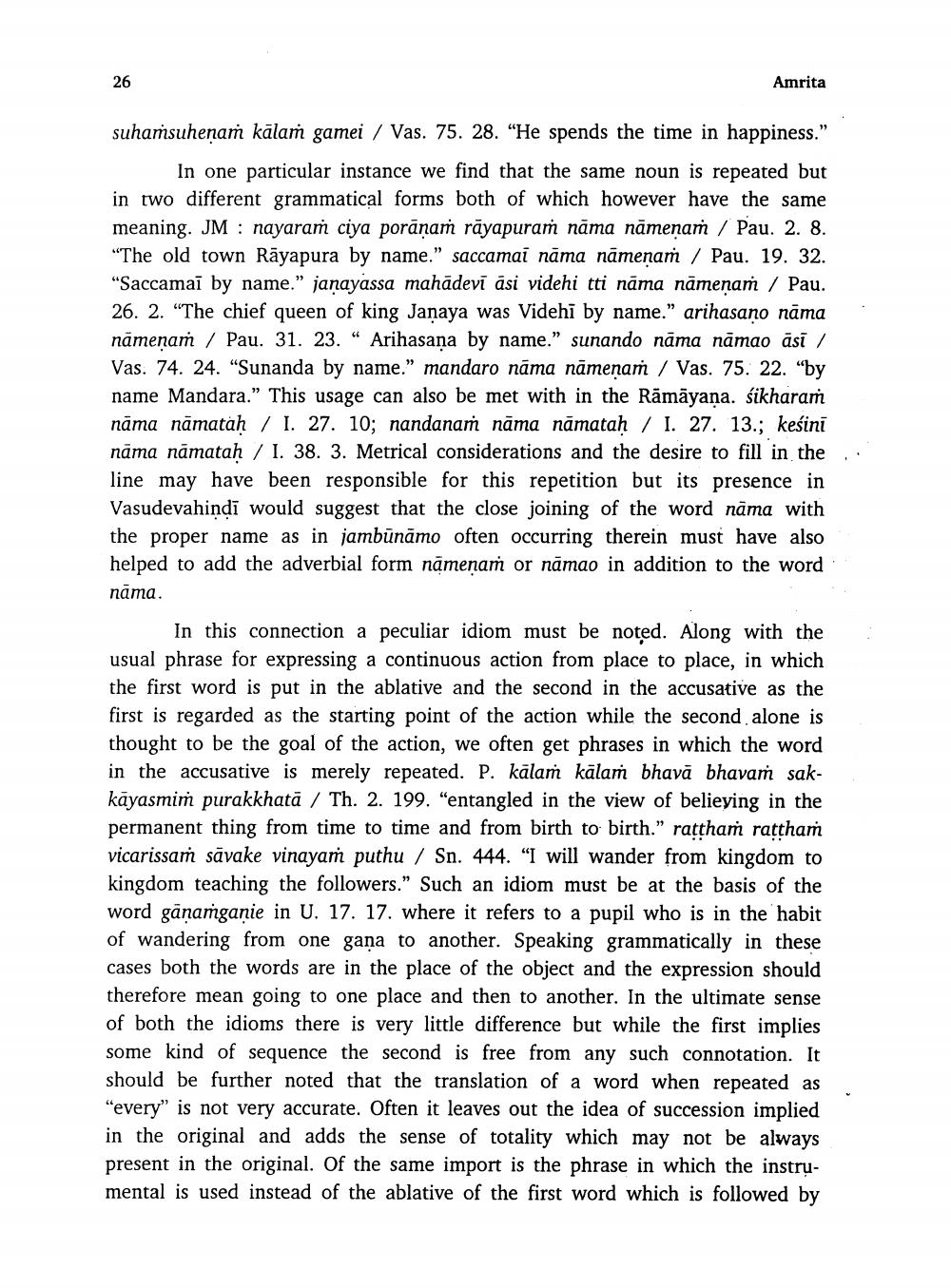________________
Amrita
suhamsuhenam kālam gamei / Vas. 75. 28. “He spends the time in happiness."
In one particular instance we find that the same noun is repeated but in two different grammatical forms both of which however have the same meaning. JM : nayaram ciya porānam rāyapuram nāma nāmenam / Pau. 2. 8. "The old town Rāyapura by name." saccamai nama nāmenam / Pau. 19. 32. "Saccamai by name." janayassa mahādevī asi videhi tti nama nāmenań / Pau. 26. 2. “The chief queen of king Janaya was Videhi by name." arihasano nama nāmenam / Pau. 31. 23. “ Arihasana by name." sunando nāma nāmao así / Vas. 74. 24. "Sunanda by name." mandaro nama nāmenam / Vas. 75. 22. "by name Mandara." This usage can also be met with in the Rāmāyana. śikharam nāma nāmataḥ / I. 27. 10; nandanam nāma nāmataḥ / I. 27. 13.; kesini nāma nāmatah / I. 38. 3. Metrical considerations and the desire to fill in the line may have been responsible for this repetition but its presence in Vasudevahindi would suggest that the close joining of the word nāma with the proper name as in jambūnāmo often occurring therein must have also helped to add the adverbial form namenań or nāmao in addition to the word nāma.
In this connection a peculiar idiom must be noted. Along with the usual phrase for expressing a continuous action from place to place, in which the first word is put in the ablative and the second in the accusative as the first is regarded as the starting point of the action while the second alone is thought to be the goal of the action, we often get phrases in which the word in the accusative is merely repeated. P. kālam kālam bhavā bhavam sakkāyasmiṁ purakkhatā / Th. 2. 199. "entangled in the view of believing in the permanent thing from time to time and from birth to birth." rattham rattham vicarissam sāvake vinayam puthu / Sn. 444. "I will wander from kingdom to kingdom teaching the followers." Such an idiom must be at the basis of the word gānaṁganie in U. 17. 17. where it refers to a pupil who is in the habit of wandering from one gana to another. Speaking grammatically in these cases both the words are in the place of the object and the expression should therefore mean going to one place and then to another. In the ultimate sense of both the idioms there is very little difference but while the first implies some kind of sequence the second is free from any such connotation. It should be further noted that the translation of a word when repeated as "every” is not very accurate. Often it leaves out the idea of succession implied in the original and adds the sense of totality which may not be always present in the original. Of the same import is the phrase in which the instrumental is used instead of the ablative of the first word which is followed by




